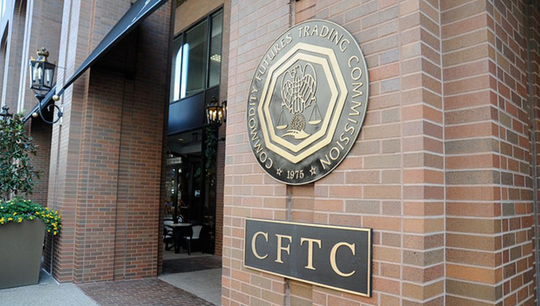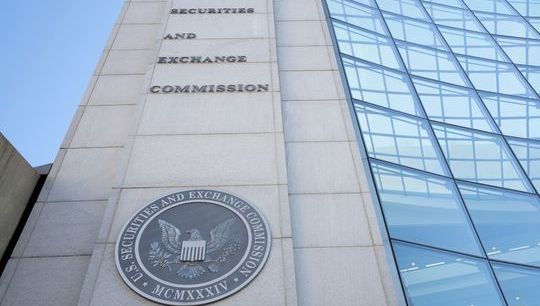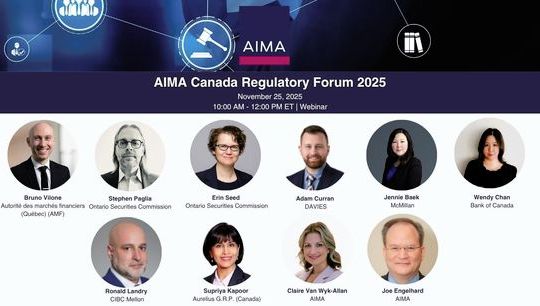Ep. 55 The Long-Short | The most important court case you’ve never heard of
Published: 22 February 2023
The Long-Short is a podcast by the Alternative Investment Management Association, focusing on the very latest insights on the alternative investment industry.
Each episode will examine topical areas of interest from across the alternative investment universe with news, views and analysis delivered by AIMA’s global team, as well as a host of industry experts.
The US SEC is being accused of massive overreach in its attempts to set a legal precedent to expand the definition of a securities dealer under the 1935 Securities Exchange Act.
AIMA is acting as a friend of the court in several cases including the bizarre case of a student flipping penny stocks who the SEC is accusing of acting as an unlicensed dealer.
Joining us to unpack the intricacies of what’s at stake for the alternative investment industry are Brian Richman, Associate Attorney at Gibson Dunn, and Suzan Rose, AIMA's Senior Advisor for Government and Regulatory Affairs.
Listen to this episode and subscribe on Spotify
Listen to this episode and subscribe on Apple Podcasts
Listen to this episode and subscribe on Google Podcasts
Listen to this episode and subscribe on Amazon Music
Read the transcript
Hosts: Tom Kehoe, AIMA
Guests: Brian Richman, Gibson Dunn and Suzan Rose, AIMA
Interlude: Lorna Barnard, AIMA
Tom Kehoe, AIMA 00:05
Welcome back to The Long-Short, and now for something a little different.
Over the past few months, the team at AIMA have highlighted our involvement in a couple of Amicus Curie or Amicus Brief. In both cases, AIMA has felt compelled to get involved, such is the severity of consequences should the motion supported by the prosecutor, in both cases being the US Securities and Exchange Commission, be passed.
And to help understand all this a little further, I'm delighted to be joined by Brian Richman, an attorney in the Washington DC Office of Gibson Dunn. Brian practices in the firm's litigation department and is a member of the appellate and constitutional law and administrative law and regulatory practice groups. He represents clients and high-stakes appellate administrative law and litigation matters, challenging agency rulemakings and defending against government enforcement actions, including involvement in the case of the US Securities and Exchange Commission versus Ibrahim Almagarby, which saw AIMA participating in an Amicus Brief.
Also joining today's episode from her base in New York is my colleague, Susan Rose. Regular listeners of The Long-Short will, of course, recall Susan star in episodes 34 and 38, both compulsive listening. But for now, Brian and Susan, welcome to The Long-Short.
Suzan Rose, AIMA Senior Advisor on Government Affairs 01:16
Thanks, Tom.
Brian Richman, Gibson Dunn 01:17
Hey, it's great to be here.
Tom Kehoe, AIMA 01:20
So, let's try to unpack this then. Let's start out with you, Susan, if I may, who and what is an amicus curiae?
Suzan Rose, AIMA Senior Advisor on Government Affairs 01:29
Certainly, well, Amicus or Amicus curiae, essentially are friends of the court. And specifically, it's a person or persons not party to a case, but who have relevant interests in what's being considered in a case. So, they assist an appellate court by offering additional relevant information or arguments in the form of filed briefs, to consider before the rulemaking, showing how a decision essentially will impact people other than the parties of the case.
Tom Kehoe, AIMA 01:57
So, Susan, why would AIMA want to get involved in such a thing?
Suzan Rose, AIMA Senior Advisor on Government Affairs 02:03
Well, as an advocate for its members, cases whose outcomes could have a significant negative implication for the industry are likely to be of interest for involvement, particularly when the implications appear to be unintended consequences. And both cases that we'll speak of today, Almagarby and then Blaszczak, later on, are two such cases.
Tom Kehoe, AIMA 02:24
And so, let's look at the first one then, Almagarby. The other one, we will come to later in the episode, that's reached its conclusion, you'll be able to offer an update on that. But the one that's very much in train is the case of Almagarby. So, what's the background behind this case?
Suzan Rose, AIMA Senior Advisor on Government Affairs 02:42
Sure, first, this case is of particular relevance given the SEC has recently proposed a rule to expand dealer registration requirements to certain fund managers not otherwise required to register as dealers. That's how it popped onto our radar. But in the Almagarby case, the SEC has argued that any company whose business model is based on the purchase and sale of securities is a dealer required to register with the Commission (Securities and Exchange Commission), which is a radically expansive interpretation that if proven could ensnare many businesses who purchase and sell securities but are not and have never been securities dealers.
Tom Kehoe, AIMA 03:19
So, let's bring Brian in now. Brian, we're delighted to have you on today's episode. You know, as mentioned, you have extensive experience in representing clients that challenge agency rulemaking. So, how did you end up getting involved in a case about, if I read this correctly, a 29-year-old student, effectively flipping penny stocks?
Brian Richman, Gibson Dunn 03:40
That's a great question. Someone like Mr. Almagarby, as you said, a student trading in penny stocks is not the kind of typical big case you see in this area. Typically, when you think of the Securities and Exchange Commission trying to impact the law, change the law or develop new rules, you think of a big rulemaking. The Commission announces what it's doing in advance, and interested parties have an opportunity to participate in the rulemaking. They submit comments and let their views be known.
But that's only one avenue that the SEC can use to make law. The SEC has the discretion to file enforcement actions and for those enforcement actions, the SEC can press theories and urge the courts to adopt theories that in effect would change the law or would expand the law. And I think that's what we're seeing here. In this case, the Almagarby case, the Commission has brought a theory against a 29-year-old student for trading penny stocks on the theory that due to the volume of his trading activity, he is a broker-dealer and has to register with the Commission. And while the case against Mr. Almagarby himself might not be that impactful, the precedent, the legal theory the Commission is asking the court to adopt, could be very impactful across the broader industry.
Tom Kehoe, AIMA 05:00
Let's expand on that then. Obviously, there's a lot of change in the wind at the moment in the US. How does all of this tie into the proposal on the dealer rule that was put out by the SEC last year?
Brian Richman, Gibson Dunn 05:16
I think it ties in really in two ways. So, first, I just want to highlight a unique part of that dealer proposal. So, in that proposal, the SEC gave a redefinition of what a dealer is. And what's unique about that definition is it's not exclusive. So, the SEC lists a number of factors that the Commission says now make somebody a dealer, but then at the end, it says, ’well, you could be a dealer anyway, based on the facts and circumstances, and it drops a footnote. And it cites to various of these enforcement cases, including the one against Mr. Almagarby. So, you already see in the rulemaking, the Commission trying to slip the enforcement theory its’ bringing in the Almagarby case, trying to slip it into the rulemaking. That's one area.
The other area is precedent. So, the Commission has put forth this rule, and if you look at the comment file, the industry participation, I think you see significant criticism of what the SEC is proposing. How it's expanding the conception of a dealer. And why I think the Almagarby case is so important is how the court interprets the dealer definition. When the court says what the Exchange Act means, and what the word dealer means, that could constrain or that have an effect on the Commission's authority to interpret that in its rulemaking.
Tom Kehoe, AIMA 06:39
And they singled out this individual, I think he was a 29-year-old college student at the time. Would the SEC have taken the same line if this was a more high-profile investor?
Brian Richman, Gibson Dunn 06:51
It's always hard to say but this is the first case the Commission is brought under its new theory. They have wide discretion, right, they could pick their targets and pick the order in which they sue people. And really the first case they're trying to test this theory is against a 29-year-old student who was trading penny stocks.
Tom Kehoe, AIMA 07:13
So clearly, then, Susan, the implications should such a ruling then be passed by the US courts, that's prompted our (AIMA’s) involvement in the amicus brief. So, what did this involve? Who reached out to whom? Can you take us through the steps of AIMA’s involvement here?
Suzan Rose, AIMA Senior Advisor on Government Affairs 07:33
Certainly, well look from case to case, AIMA’s role may differ. But at the end of the day, AIMA is either putting forward or lending weight to a legal argument. In this case, we were contacted by Gibson Dunn, to participate in the amicus brief for Almagarby. And essentially, we have worked closely with Brian and his colleagues to put forth both the amicus brief and a second argument that went through last month, which Brian perhaps could give some additional detail on. But again, the issue is that we're either lending weight to an argument, or we're putting one forward.
Brian Richman, Gibson Dunn 08:13
Just to expand on that a little bit. I think in this context, having a group like AIMA participate is very helpful. It gives a perspective to the court that might not otherwise be there. Based on the Commission's decision of the order in which it brought these cases. At the outset of this case, the only parties were the Securities and Exchange Commission given its theory, and its theory, as we said, could be read extremely broadly, by anyone in the business of buying and selling. And the only other theory in there was Mr. Almagarby’s. So, in a case like this, it's very important for the industry to come up and tell the court what the implications of the ruling might be. And to give the court background on how the statute works. AIMA could really explain to the court how the broader Exchange Act and how the broader securities laws play in with the dealer definition, and how the Commission's theory would have a much broader impact across the industry. And that's why briefs, like this, are so important.
Suzan Rose, AIMA Senior Advisor on Government Affairs 09:20
One of the things I want to raise here, because I think it's relevant to both what Brian just mentioned, and the case overall, is the fact that there really hasn't been much attention given to this case, much as there was in a way of Blaszczak, which again, we'll get to. But at the end of the day, there hasn't been the kind of focus that you would expect there would be where such a dramatic rewrite of the dealer definition is being attempted. And, sometimes getting involved where there's not a bright light being shined on something is precisely why you should. Should the SEC or any other party be allowed to regulate in the shadows? And that's in fact, what's being attempted here.
Tom Kehoe, AIMA 10:04
And so, Susan, does AIMA often get asked to be involved in these types of amicus briefs or was this just the first of its kind? You've mentioned one other and we'll get to that, but presuming our position, we'd be asked quite a lot, but something like this, right?
Suzan Rose, AIMA Senior Advisor on Government Affairs 10:21
AIMA has been asked since the Blaszczak Amicus Brief process and Blaszczak was the first of its kind for AIMA. It (AIMA) had not gotten involved to this degree previously. But again, the facts and circumstances of what's being argued need to be weighed carefully. There are, of course, many opportunities where AIMA would be asked if it wants to participate, and there have been a number of opportunities where it's been asked, but that doesn't mean it's necessarily appropriate, or that the circumstances would have a profound impact on the industry. You really do have to weigh out what's being argued.
Tom Kehoe, AIMA 11:00
So, sticking to the Almagarby case, Brian, what are the latest developments regarding this?
Brian Richman, Gibson Dunn 11:07
So, the briefing in the Almagarby case itself has been completed. The SEC filed its briefs, Mr. Almagarby filed his, and AIMA and amici have filed their briefs in that case. Now recently, there is a second case that is coming up. So, I mentioned that Almagarby is the first case in the commission's dealer enforcement initiative. The commission has actually filed many cases across the country, citing the opinion and Almagarby saying the deal of definition is so broad, and therefore we can go after others and attempt to make them register. So, there is a second case, also in the eleventh circuit that is coming up on appeal, and Gibson Dunn, we represent the defendant in that case. We recently asked the eleventh circuit, the court of appeals, to consolidate both of those cases, to hear the Almagarby case, and to hear the Keener case together. And that motion is still pending.
Tom Kehoe, AIMA 12:08
So what happens then, if the case is decided out of favour, despite meaningful concerns that we have raised?
Brian Richman, Gibson Dunn 12:17
It really depends on what the court does and how it decides it. The court in a case like Almagarby has a lot of options. In terms of deciding the case, it could adopt the SEC statutory interpretation, it could adopt the statutory theory that the AIMA put forward, or there were a number of other grounds on which the court could rule. Mr. Almagarby, for example, raises a fair notice defence, a due process constitutional defence. A ruling there might help him or others in a similar situation and enforcement action, but wouldn't necessarily move how the word dealer is defined under the Exchange Act. So again, it really just depends on how the court decides it and on what grounds the court picks to decide it.
Tom Kehoe, AIMA 13:02
And do we have a sense in terms of timing as to when we're likely to hear the next instalment of this saga?
Brian Richman, Gibson Dunn 13:09
These are always difficult to tell. As I said, the briefing on Almagarby was recently completed about a month or two ago, you're probably looking at a decision, I would say, within the next year, I think you'll see a decision in that case.
Tom Kehoe, AIMA 13:24
And that's not the endgame, or is that the endgame? What if that was to not work in our favour? Would we then have an opportunity to escalate that? Would that go to the US Supreme Court, for example?
Brian Richman, Gibson Dunn 13:36
So, there are places to go depending on what the court rules. So, there are really two options after the Court issued its decision in Almagarby, the parties could ask for something called rehearing en banc. That is where the entire court of appeals would rehear the case. Right now, in your normal typical appeal, what happens is an appellate court, a US federal appellate court assigns three judges from the Court to hear the case, that's called a panel, and the panel will issue a decision resolving it. That's what you'll see in Almagarby. That'll be the first decision, it will be a panel decision.
The parties could then ask the entire court, every judge on the eleventh circuit, to sit and rehear the case. Those are discretionary. The court does not have to grant that but it could if it thinks the issue was important, or if it thinks the panel made a mistake. That's one option.
The second option is the parties could also ask the US Supreme Court to hear the case, they could file for a petition for writ of certiorari. Again, that's completely at the Supreme Court's discretion. There's no right to have your appeal heard by the court. In this instance. It would be asking the court to exercise its discretion to hear the case.
Tom Kehoe, AIMA 14:51
Yes, so clearly a lot at stake.
Lorna Barnard 14:54
Interlude - AIMA’s Next Generation Manager Forum, now in its 10th year, returns to London on Tuesday the 16th of May. The forum provides a platform for the exchange of ideas and the development of peer networking for senior individuals at alternative asset management businesses managing up to US$500 million in hedge and private credit assets. Throughout the afternoon, speakers will discuss next-generation managers 10 years on, the war for talent, how to acquire and keep it, ESG implementation and non-negotiables, and investor relations, retention and maintenance. Register today to learn more from the stellar speaker lineup and engage and network with colleagues, both old and new. We look forward to welcoming you.
Tom Kehoe, AIMA 15:36
And Susan, coming to you now, as mentioned, AIMA has been involved in a prior Amicus Brief. What can you tell us about this case?
Suzan Rose, AIMA Senior Advisor on Government Affairs 15:45
Certainly. Well, that case is referred to as the Blaszczak case. And in that circumstance, the government was attempting an unorthodox use of a criminal statute that was meant to protect property such as munitions for the purpose of insider trading and wire fraud charges. So, the case had garnered surprisingly little public attention, despite having profound implications for the investment industry. And it put the legitimate investment research process at risk. Equally, it opened the door to insider trading prosecution without requiring the long-standing personal benefits test, also known as Dirks Test, and it would establish broad potential criminal liability for insider trading beyond any civil liability for the same conduct. Obviously, this was all a concern to AIMA.
Tom Kehoe, AIMA 16:35
And again, there seems to be a correlation. Or, maybe it's just me, that they've singled out a case that will be somewhat below the radar to try and fit this angle around insider trading. So, what would have been the consequences, Susan, if the ruling had been different?
Suzan Rose, AIMA Senior Advisor on Government Affairs 16:57
Certainly. Well, let's back up a little bit to the ruling. So, recently, the case, the convictions were overturned, and they were overturned after going all the way to the Supreme Court. The Supreme Court then remanded the case back to the Second Circuit, which had made the initial decision to reconsider it in light of another case's decision. And that case was referred to as the Kelly case, it's otherwise more commonly known to known as Bridge-gate.
Essentially, the government was attempting to use title 18, and a unique definition of property, in that case, to relate it to traffic flow. In any case, when the Supreme Court returned the case to the Second Circuit, they did so based on the decision in Kelly. So, in the final decision, recently, and that's at the end of December when the final decision was released, the Second Circuit appeals court found the government's use of title 18 to be in error, which is not surprising given the way it was remanded. So, it was consistent with the Supreme Court's interpretation in the Kelly case.
Now that being said, the majority judges, since they weren't discussing all of the merits that had been brought up in the amicus briefs, as well as the arguments the defence had made, the judges also issued a detailed opinion to discuss why the private courts prior reasoning was both flawed and problematic. So, all of the discussions that we had on the impact it could have on the legitimate research process. The opinion itself made a persuasive argument for why the long-held personal benefits test must be satisfied in an insider trading case. And it stressed the need for clear rules on insider trading for the sake of market efficiency.
So, essentially, the case as far as AIMA was involved in, there were additional conspiracy charges that were remanded. But at the end of the day, it was decided based on an error in interpreting property under title 18, it wasn't decided based on the arguments that were made. However, this detailed opinion goes a long way towards supporting other cases and as well dissuading the potential for the use of title 18 in attempting to prosecute insider trading. Again, title 18 has a much lower threshold to prove guilt than the civil statutes that are in place and normally used, which include a personal benefits test. I hope that's helpful.
Tom Kehoe, AIMA 19:27
It helps very much and thank you for that.
In a similar question that I put to Brian about Almagarby, is that it? You've mentioned that the final decision has been made, so does that mean there's no more room for appeal of this decision? And does that conclude AIMA’s part in this matter?
Suzan Rose, AIMA Senior Advisor on Government Affairs 19:46
It concludes AIMA’s part in the case as it exists right now. So, the process is essentially exhausted other than, of course, the conspiracy charges that are unrelated to AIMA’s involvement.
Now that being said, that doesn't prevent the government from perhaps reviving the case under a different form of prosecution. And, there has been some chat related to that. But look, at the end of the day, the reasons for getting involved remain the same should this case or another like it emerges and have such profound potential implications for the industry. It certainly would be something to consider getting involved in.
Tom Kehoe, AIMA 20:26
Indeed, AIMA members can read up on both of these cases, the ongoing Almagarby case in which AIMA plays a part within the amicus brief and the conclusion to the Blaszczak case. You can read more about that in the show notes.
Susan, as AIMA’s advocacy efforts continue to grow in influence across the US, what other work can you tell our listeners about that we're engaged in?
Suzan Rose, AIMA Senior Advisor on Government Affairs 20:52
Certainly, there are many different aspects to advocacy work. Of course, the best known is the engagement of regulators or other officials on specific regulation. So, rule proposals or other industry issues, there also are circumstances where a trade association might be a party to litigation, and that's different than this where you're providing weight to an argument through an amicus brief, whether it's a lead plaintiff in a lawsuit or as part of the concerned group. But, at the end of the day, the majority of the advocacy remains in that segment that we're most known for. So, getting involved in feedback on rule proposals or providing information, insights and opinions to the Commission or others on how an issue in the industry may impact the participants, how potential lawmaking may influence things going forward, and certainly, anytime there are unforeseen consequences to regulation.
Tom Kehoe, AIMA 21:51
Well, unfortunately, that's all the time we have today. We could spend literally hours on this. Brian and Susan, many thanks for shedding a light on something, as you said Susan, that has really gone under the radar for some time, and has such important consequences through both the work that Brian has done at Gibson Dunn and the amicus brief that AIMA has been involved in. Brian, no doubt, we'll hear from you again to hear the latest instalment of the Almagarby case.
Thank you for your time and for joining us on The Long-Short.
Brian Richman, Gibson Dunn 22:29
Thank you, Tom. Great to be here.
Tom Kehoe, AIMA 22:34
And you can learn more about AIMA’s advocacy, the what, the how, and where AIMA represents the Alternative Investment Industry, not just in the US and the work of Susan and our colleagues there, but globally by going to our website aima.org or following us on LinkedIn and Twitter.
Disclaimer
This podcast is the sole property of the Alternative Investment Management Association (AIMA). This audio production and content are intended as indicative guidance only and are not to be taken or treated as a substitute for specific advice, whether legal advice or otherwise. AIMA permits use or sharing of the content in media or as an educational resource, provided always that proper attribution is made. The rights in the content and production, including copyright and database rights, belong to AIMA.








